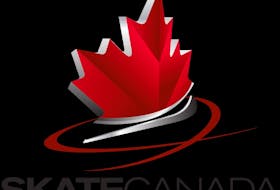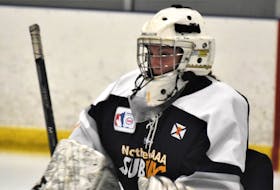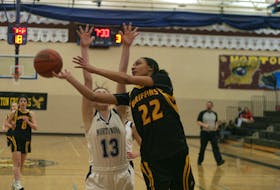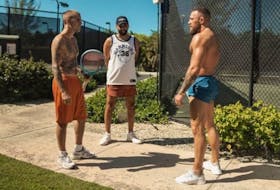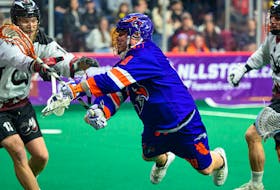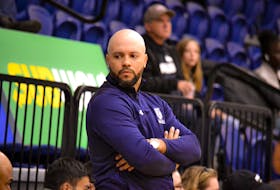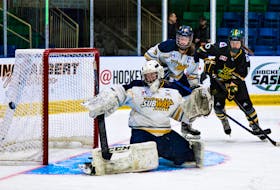Norway may be a small nation, but they continue to do big things on the global stage with their athletes winning a share of the hardware on the Olympic stage.
Norway sports officials believe much of the success traces back to its disregard for the scoreboard with budding athletes.
Norway puts kids in sports but doesn’t let them keep score until age 13. The idea is to make sports part of their social development so that the motivation to stay involved is to have fun with their friends, not winning.
It is a common belief in that country that athletes should be able to have fun and form friendships in the early years to ensure they stick with the sport and have fond lifetime memories to take away from the experience.
The Star talked to a number of local coaches to get their thoughts on the Norway approach to player development.
What are your thoughts on Norway’s approach to developing young athletes and do you think it’s something that Canada should take a serious look at?
Nathan Wareham, volleyball coach
I like it. At a young age, allowing athletes to find their way without pressure I think is smart. It allows athletes to enjoy the experience, which I am learning … the journey is more important than the end sort of speak. I’m big on that and I like the fact that allowing athletes to develop naturally and go into a culture that is obviously focused on excellence I think goes hand in hand.
I do think it would be effective here and I think you see that somewhat with some sports. I think, though, that one of the challenges we face is that even though we have a lot of individual sports I think Norway focuses more on individual sports as opposed to team sports, and there are different dynamics but I think the basis of it is the same. I use the analogy — everybody calls it old school — but I mean back in the day you played on the local softball pitch with your friends and there were no rules. You just played and you learned the game naturally and learned to make decisions.
Doug Sweetapple, soccer coach
I think if we compared the two approaches I don’t see a lot of difference. For example, Newfoundland soccer, which uses the long-term player development model, does the same for the Under-12 … all our tournaments no scores are kept except by a lot of the parents for comparison purposes. There is certainly no emphasis put on keeping score for our Under-12 group and all the way down. I think it follows pretty well in line with what other modern countries are doing.
I think it can be effective in Canada, but I think Canada is already doing it. If they’re not doing it in every sport it’s because of the people who are running that particular sport. The information is there for every sport to follow and if they are part of the funding we’ll say and they come under the Canadian sport system they all have the information. I’m not familiar with all of the other sports I’m more familiar with the soccer, but every sport really should be falling in line with this long-term player development. Every sport is privy to the same information and they probably even sat at the table when it was being developed. If they don’t follow it then it’s to their own detriment really and to the detriment of our children who take part in their particular sport. At least in Corner Brook, I think the different sports should sit down and talk to each other more because sometimes kids are under too much stress. Fun is definitely a main part of their development and they stress fun and friendship, and I definitely agree with that. I’m thinking we probably take the fun out of it too much and this is why all sports really need to get in line with the long-term player development that has been developed by the best sports minds in Canada.
Todd Stark, hockey coach
When parents sign their kids up for hockey or team sports and you ask them why they do it they give you a lot of great messages on what they hope to accomplish. They want to expand their kid’s social world and give them a sense of belonging, and teach them the value of teamwork and sportsmanship. Never do they say we want to win championships and medals. They would never claim that to be a motivating factor. So, here’s Norway talking about reinforcing fun and friendships, and letting them be a kid and not introducing that competitive element until later on. Well, it’s interesting that’s what parents say when they sign them up, but the way it works here in Canada is you only have that short window of innocence. When the kids first arrive, the first year or two, and mom and dad and the grandparents are there, and the kids are having fun and everybody seems to be happy. Then, at too young of an age, it becomes competitive and you start picking travel teams and some are selected and some are left behind, and it creates some hardships amongst the parents and it takes the fun out of it and then you have this dropout rate. Every time a kid drops out, particularly at a young age, coaches and the governing bodies need to go ‘OKk, why are we losing them?” We want them to stay involved in the sport. At the end of the day, it sounds like Norway is reinforcing letting them be kids when they are kids, making sure it’s fun and they are developing friendships and really enjoying their sport so it becomes a lifetime thing for them. We want to encourage a healthy lifestyle and obviously Norway is on the path to getting there and, for us, we just seem to lose our way a little bit. We get too caught up in recognizing this competition. Our world is a competitive world, but you want to have great memories of your childhood and hopefully great memories of whatever sports you get involved in so you carry them on.
Bruce Hamlyn, swimming coach
Norwegian athletes certainly have it right. Sports are for fun, especially for the younger age groups. Swim Canada has been appropriately advocating ‘long-term athlete development’ for swimmers in Canada for at least 10 years. It is easy for coaches to fall into the trap of developing a swimming star at a young age. For coaches, one of the most frequent demands from parents and executive members is to push talented young swimmers into training groups before their bodies are ready. Preadolescent swimmers can work harder and recover faster than their older teammates. The problem is, putting these training loads on younger swimmers under 13 inevitably leads to injury both physically and psychologically. At the Corner Brook Rapids Swim club, personal bests are the emphasis. Teambuilding through visits to Killdevil Lodge and clearing the deck after swim practice are as important as swimming fast.


